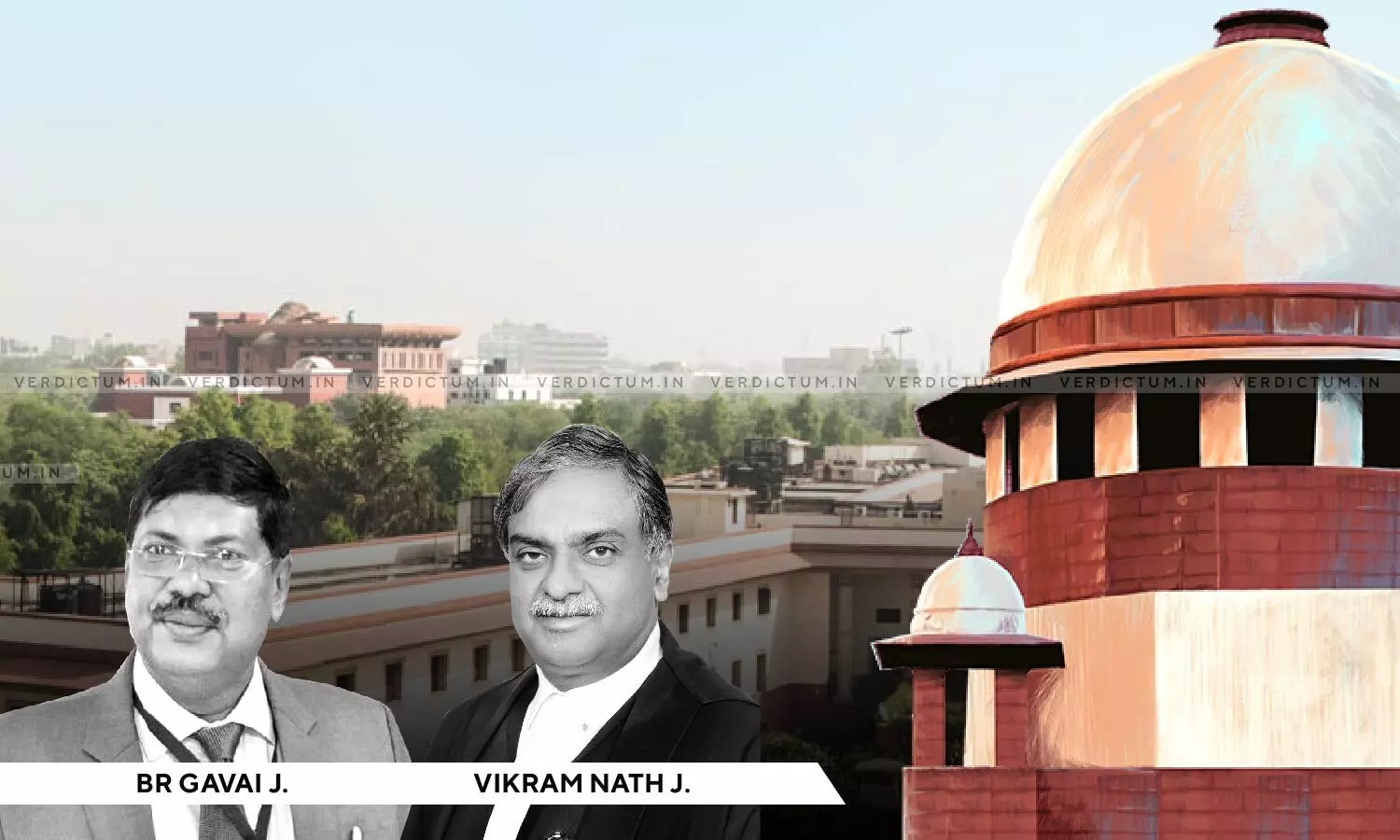
Extra-Judicial Confession Is Weak Piece Of Evidence Especially When Retracted During Trial: SC Acquits Man In Murder Case
 |
|The Supreme Court while acquitting a man in a murder case held that the extra-judicial confession is a weak piece of evidence especially when it has been retracted during the trial.
The two-Judge Bench comprising Justice B.R. Gavai and Justice Vikram Nath observed, “The extra-judicial confession is a weak piece of evidence and especially when it has been retracted during trial. It requires strong evidence to corroborate it and also it must be established that it was completely voluntary and truthful. In view of the discussion made above, we do not find any corroborating evidence to support the extra-judicial confession, rather the evidence led by prosecution is inconsistent with the same.”
The Court was hearing an appeal challenging the judgment of the Tripura High Court by which the conviction of the appellant was confirmed being recorded by the Trial Court under Section 302, 201, and 34 of the Indian Penal Code and he was awarded imprisonment for life.
Advocate Madhumita Bhattacharjee appeared for the appellant while Advocate Shuvodeep Roy appeared for the respondent.
Brief Facts –
The Police Station via telephone message received information that a huge quantity of blood had been seen on a road. There was not only blood on the roadside but also a blood-stained vojali (big knife), one taga (thread), and some broken pieces of glass which could be said to be of the rear-view mirror of a motorcycle. During the investigation, the police received information that one person has been missing.
The Investigating Officer thereafter went to the house of the appellant. According to the Investigating Officer, the accused confessed before him that they had gone to an area on the bike of the deceased and assaulted him with the vojalis. The Trial Court convicted the appellant of the offences and sentenced him. The appellant preferred an appeal before the High Court which got dismissed as it was also of the view that the prosecution had been successful in proving the charges beyond a reasonable doubt.
In view of the facts and circumstances of the case, the Supreme Court said, “Even the Trial Court and the High Court in the absence of any evidence have not been able to record a finding on the motive for the commission of the crime. … in the present case, the dead body has not been recovered. Only a limb was recovered but no DNA testing was carried out to establish that the limb was that of the deceased Kaushik Sarkar.”
The Court noted that two other witnesses were examined in support of the last seen theory but they did not inspire any confidence.
“The dragging of some heavy object from the place where the blood-stains were noticed and ‘vojali’ was recovered, up to the edge of the river and then recovering the motor bike from the place from the bed of the river just below where the dragging marks had come to an end is something quite normal and expected. It was not a place which could be in the exclusive knowledge of the appellant”, the Court further noted.
The Court asserted that the major links of the chain of circumstances have not been proved by the prosecution evidence and as such, it would be unjust to uphold the conviction of the appellant.
“Appellant is in judicial custody. However, he was granted parole by the State. He shall be released forthwith”, directed the Court.
Accordingly, the Apex Court allowed the appeal and acquitted the appellant of all the charges.
Cause Title- Indrajit Das v. The State of Tripura
Click here to read/download the Judgment